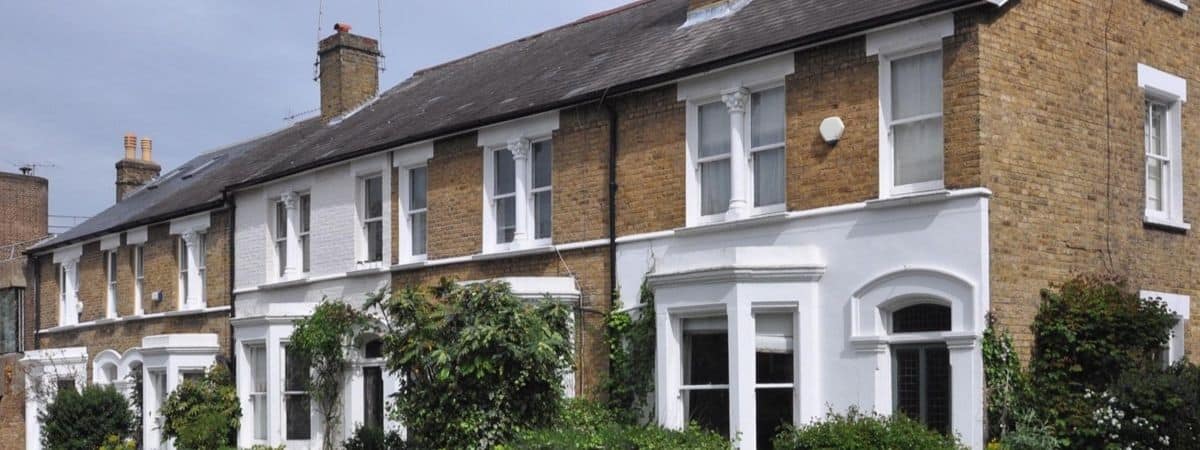
April 2024
Asset Protection Trust in April 2024
Using a trust can give you peace of mind that your chosen beneficiaries will inherit from your estate. The benefits can include reducing the care fees payable to the local authority and have tax advantages. It is a good idea to contact a legal adviser on the rules about trusts, and the best way to manage your financial affairs.
Topics that you will find covered on this page
What is a trust?
A trust is a legal tool where one person holds property for someone else’s benefit. Key terms worth knowing to help you understand the structure of trusts are:
Settlor – the person who made the trust
Trustee – The person or people who hold the legal ownership of the funds and often have discretion as to how it is distributed.
Beneficiary – The person who gets the benefit from the property. Trustees have to act in the best interests of the beneficiary.
What is a family asset protection trust?
The term asset protection trust is a marketing term, so different solicitors and providers will use it to mean different things.
Sometimes the terms ‘home protection trust’, ‘family protection trust’, and ‘property protection trust’ are used in its place. Most often, asset protection trusts refer to lifetime trusts.
How does this type of trust work?
First, you must transfer your home or any other assets into a life interest trust, granting yourself and your partner the right to live in the property and any trust income. You make your children the ultimate beneficiaries of the trust, on the basis that they get the house and content of the trust after you die. You will need legal advice to set up a trust.
Here is a short video about how to use a trust to protect your property.
What is a lifetime trust?
Lifetime trusts come into being while you are alive, unlike trusts in a will. A share of your home is gifted into the trust, so you can keep living in it.
Are lifetime trusts fixed interest or discretionary?
Lifetime trusts can be either fixed interest or discretionary. Fixed interest is where the first beneficiary has complete rights to occupy the house and get trust income.
Discretionary is where trustees get to choose how to distribute the assets to the beneficiaries. If it is a discretionary trust, settlors usually will write a letter of wishes, for example, to express their intention that a beneficiary can live in the house.
What is a will trust?
Occasionally, the term asset protection trust will refer to trust wills. Trusts wills are activated on your death, and you can give the conditions of the will trust in the will document. This is most common for couples passing on their family home.
Who needs an asset protection trust?
Anyone over the age of 18 who has capacity can appoint a solicitor or expert to set up asset protection trusts. A trust is a useful scheme for anyone who is considering how to pass on their property.
Can I make an asset protection trust alone?
To set up a trust, you need to use the right legal language, so you should get a solicitor regulated by the solicitors regulation authority. As a guide, you can find a solicitor with experience setting up family trusts using the Law Society directories:

How much does an asset protection trust cost?
A basic trust in a will could be as little as £300. Complex trust arrangements requiring specialist legal advice could be several thousand pounds. It is a good idea to contact multiple solicitors to get an assessment.
How can I avoid sideways disinheritance?
Sideways disinheritance is where one partner dies, and if the surviving spouse remarries, and doesn’t make provisions for the children from the first marriage in their will, on their death all their money and assets will go to the new partner.
Putting a life interest trust in your will means that your share of the house goes to your children when you die, but your spouse can keep living in the house for the rest of their life.
"A basic trust in a will could be as little as £300. Complex trust arrangements requiring specialist legal advice could be several thousand pounds."
Help & Advice Tweet
How much are care fees?
Under the legislation the Community Care Act, if you have assets worth over £23,250, if you need long term care you have to contribute to your care fees.
Therefore, one reason people set up this type of trust is so that legally the share of your assets in the trust is not taken into account as part of your estate.
Can an asset protection trust help you avoid care fees?
As a guide, in England and Wales, if your assets are in a trust they may not be assessed for care costs, and you may be entitled to state benefits.
However, if from the context the local authority determines that there has been deliberatedeprivation of assets, like if you had knowledge your health was deteriorating, they can disregard the trust, and assess the funds for care fees anyway.

What is the deliberate deprivation of assets?
Deliberate deprivation of assets is where you make a transfer to a trust for the purposes of avoiding care home costs to the local authority. The local authority will probably not determine there was deprivation if the gift to the trust was when the settlor was in good health and could not have thought they would need to go into a care home.
What do I need before I can set up an asset protection trust?
You need to betenants in common rather than having a joint tenancy over your family home. This means you and your partner each have a 50% share in the value of the home, rather than owning the whole thing together.
What are the reasons to use an asset protection trust?
There are a number of pros to using this type of trust:
- Important in estate planning to preserve family wealth. You will have to give less to the local authority and there may be less inheritance tax implications.
- In terms of preserving the value of your estate, money in trust will be risky than gifts to children
- You may avoid care home fees
- Can make a provision where you can continue to live at the address.
- More control and fewer risks than if you transfer the property to family members
- May avoid the probate process after your death. Probate fees come out of the capital in your estate so it will impact inheritance.
- Less likely to be court proceedings with claims on your property as this is a clear arrangement
- Could be an investment, as the trust may be a source of income capital
- Solicitors can help draft your wills or trust document to fit your intention, so trusts can be flexible.
What are the problems with asset protection trusts?
There are also cons to the creation of a trust:

- The risk that local authorities may still make an assessment of the trust for care home fees if they think there has been a deprivation of assets. In theory, you could end up facing court action which is expensive.
- Paying for appointments with lawyers to create the trust documents. You are likely to have to pay to transfer investments in and out of the trust and for general trust administration.
- There can be inheritance tax problems, and if you do not have the right information you may end up with more tax liability than you expected.
- Numerous incidents of clients being victims of unfair selling practice of these types of trust by solicitors.
- Grant of probate is still probably going to be necessary for the deceased.
It is important to put into the equation the tax consequences of setting up a lifetime trust. It is a good idea to get legal help and advice on the possible tax effects on your estate.
Inheritance Tax (IHT)
If the trust property has a value of over the nil-rate band of £325,000, there will be an immediate 20% charge on the amount over the threshold. This is especially an issue if you are putting your house on trust. There also may be a 10-year charge of 6% on the assets over the nil-rate band, as well as an exit charge.
Capital Gains Tax
If one of the trustees sells the trust assets, thencapital gains tax may be payable. The annual capital gains tax allowance is smaller for a trust than it is for an individual unless the trust is for a disabled person, where there is an exemption.
Income Tax
Income tax may be required on payments from the trust.
For more information on the tax on trusts, go tohttps://www.gov.uk/topic/personal-tax/trusts
Why would I not just make an outright gift to my children instead?
Many people as an alternative to a trust, choose to give a family member or loved ones their property while they are alive. This means that the property is no longer part of their estate and there may be for tax benefits. There are risks to this, including:
- You cannot be certain that the individual you made the gift to will support you, so you could lose your home
- If the recipient gets a divorce, the value of the property will be considered in the divorce settlement stage
- If the recipient faces bankruptcy then the creditors can claim the property.
- If the recipient dies, then the house will be passed on according to their will. The group of individuals who inherit from their will may not let you continue to live at the address.
- Possible adverse tax consequences of making a large gift. The ability to set up a trust for inheritance tax purposes was reduced by recent legislation.
Article author

Katy Davies
I am a keen reader and writer and have been helping to write and produce the legal content for the site since the launch. I studied for a law degree at Manchester University and I use that theoretical experience, as well as my practical experience as a solicitor, to help produce legal content which I hope you find helpful.
Outside of work, I love the snow and am a keen snowboarder. Most winters you will see me trying to get away for long weekends to the slopes in Switzerland or France.
Email – [email protected]
LinkedIn – Connect with me
Learn about different types of Trusts that could also help you

Property Protection Trusts
This is a trust you put in your will so that the surviving spouse can continue living in your property, but the deceased’s share of the property is kept separate.

Interest in Possession Trusts
This is a trust where the trustee must give all the trust income to a beneficiary as the income is generated, except for trust expenses.

Inheritance Tax Planning Trusts
By putting your money and property into a trust, you can maximize your tax-free allowance and reduce the amount of inheritance tax you pay.

Life Interest Trusts
A life interest trust is a trust written into a will. This means that the trustees hold the assets in the trust on behalf of the beneficiaries. Read more about them.

Asset Protection Trusts
The benefits can include reducing the care fees payable to the local authority and have tax advantages.

Home Protection Trusts
Protecting assets in a trust is a good option for wealth management and getting control over who inherits from your estate.

Inheritance Protection Trusts
The term ‘inheritance protection trust’ could describe many different types of beneficiary trusts. However, it usually refers to a trust for healthy, capable beneficiaries in a will.

Family Protection Trusts
A family protection trust is a method you can use to ring-fence your assets from taxation, care fees, and other risks to your estate.

Estate Planning & Trusts
Estate planning involves considering what to do with a person’s money and assets after they are deceased.
Frequently Asked Questions
What is a trust?
A trust is a legal tool where one person holds property for someone else’s benefit.
What is a family asset protection trust?
The term asset protection trust is a marketing term, so different solicitors and providers will use it to mean different things.
Sometimes the terms ‘home protection trust’, ‘family protection trust’, and ‘property protection trust’ are used in its place. Most often, asset protection trusts refer to lifetime trusts.
Are lifetime trusts fixed interest or discretionary?
Lifetime trusts can be either fixed interest or discretionary. Fixed interest is where the first beneficiary has complete rights to occupy the house and get trust income.
Discretionary is where trustees get to choose how to distribute the assets to the beneficiaries. If it is a discretionary trust, settlors usually will write a letter of wishes, for example, to express their intention that a beneficiary can live in the house.
How much does an asset protection trust cost?
A basic trust in a will could be as little as £300. Complex trust arrangements requiring specialist legal advice could be several thousand pounds. It is a good idea to contact multiple solicitors to get an assessment.

